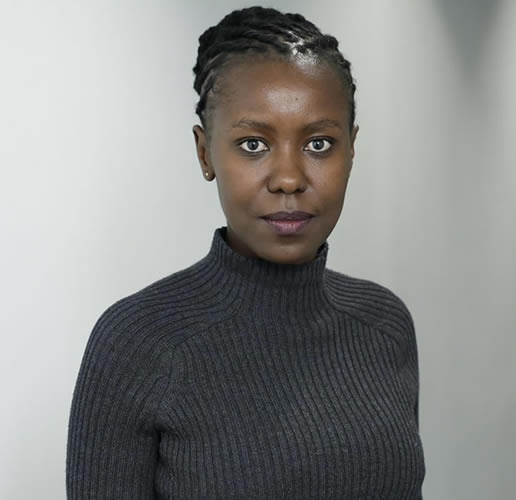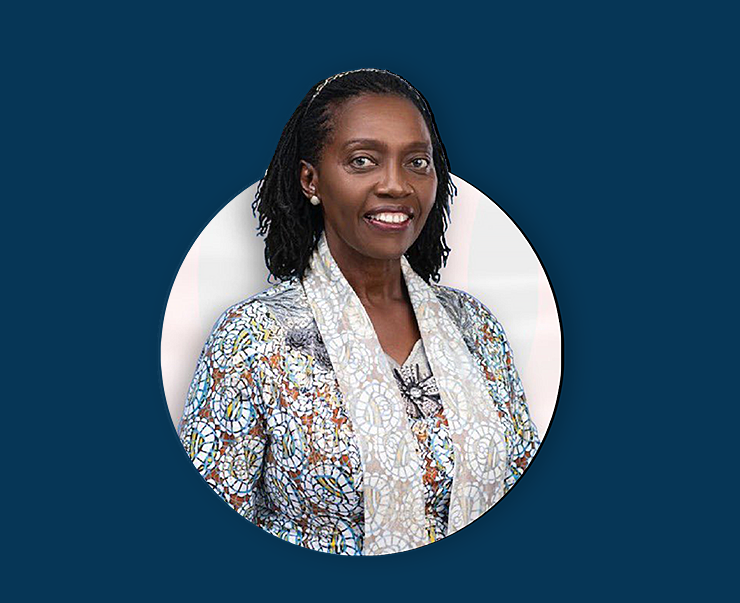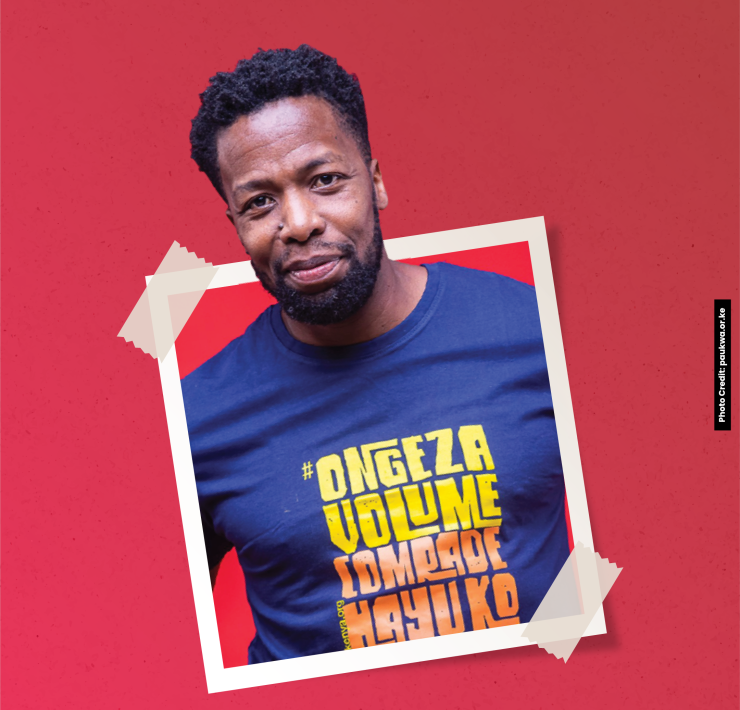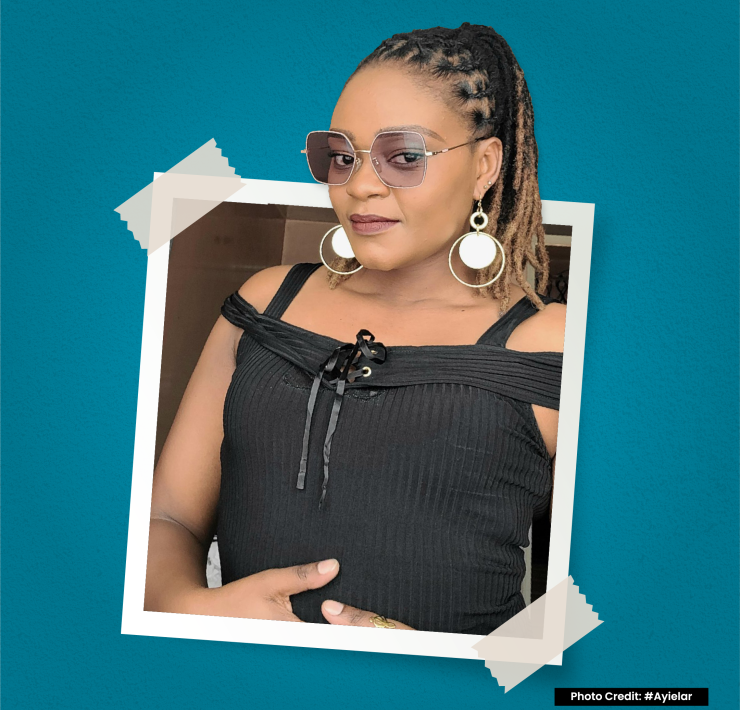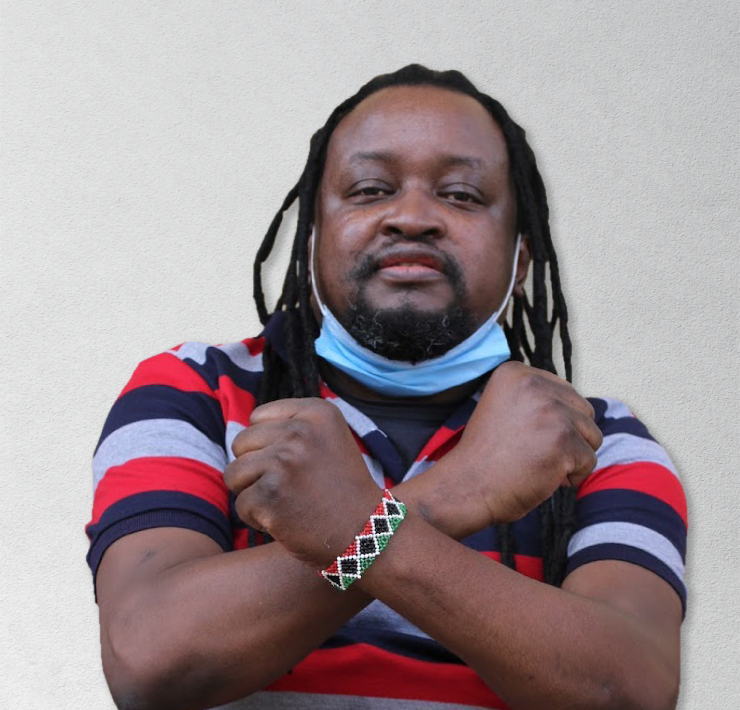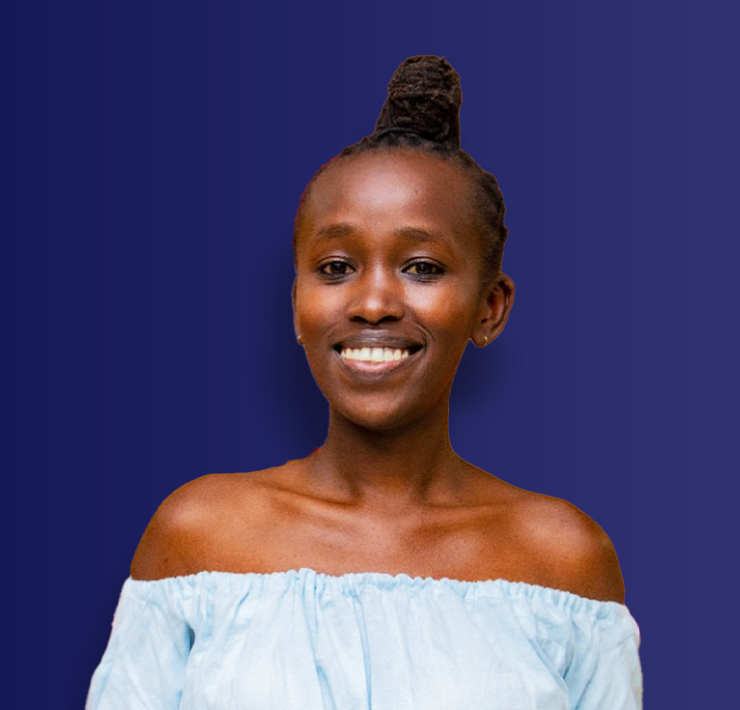NAOMI NJERI MWAURA is passionate about ensuring women’s safety in urban transport and other public spaces. In 2014, she was among hundreds of women who led the MyDressMyChoice campaign to protest against gender-based violence in Kenya’s public transport after a video of a woman being assaulted by a group of men near a bus stop in Nairobi went viral. Naomi is the founder of Flone Initiative, an organisation working to create a safe and professional public transport industry in Kenya. In 2017, she was named by the BBC as among the world’s “100 Inspirational and Influential Women”. She spoke to RASNA WARAH about why cities and their public transport systems need to be safer spaces for women and girls.
Q.You have said that women and men experience cities differently, and that cities are generally hostile to women. What do you mean by this?
Cities offer a myriad of services, which often attract women as residents, visitors and business persons. In this regard, women tend to interact with the city more frequently and at different times compared to men. Further, their movement within the city is characterised by trip chaining and mobility of care where they travel with luggage, children or other vulnerable persons of the household, such as the elderly or the sick. This makes their experiences and needs in the city already unique and sensitive.
Moreover, the available infrastructure within the city increases their vulnerability. Let’s take Nairobi as a case example where walkways are almost non-existent and the existing ones are now encroached by hawkers. It is even difficult for men to maneuver through the web of people on these streets. Now imagine how it is for a woman carrying luggage and a baby. Streets also lack lighting, which increases women’s susceptibility to theft or physical and sexual abuse at night, hence discouraging them to conduct business or interact with the city at night.
The public transport systems in cities are also not safe and inclusive of women’s needs as commuters and employees. Our work at Flone Initiative has explored the dynamics of women and public transport, revealing that a majority of women have been victims of physical and sexual harassment while using and working in public transport. This not only affects their travel choices but also their career cycle in the transport sector, discouraging women from seeking jobs in the industry.
The housing conditions in cities, particularly for low-income earners, are of low quality and characterised by being close to traffic and lacking basic services, such as water and sewer connections, further exposing women and their families to vulnerability. And as caregivers, it is their responsibility to ensure their families are cushioned against these risks. Maybe one could argue that these issues affect men and women equally; however, women tend to carry the larger burden of the repercussions.
Q. Your women-led organisation, Flone Initiative, seeks to create a safe public transport industry in Kenya. One of the issues that has been identified as most concerning for women using public transport is lack of safety and sexual harassment. What should cities, county governments and public transport operators do to make public transport safer for women and girls?
I would like to first admit that the transport sector has been male-dominated not only in Kenya but globally, where women comprise about 20 per cent of the workforce, according to the International Labour Organisation. This leads to lack of consideration for women’s needs during policy making and implementation.
Based on our evidence on the lack of safety and sexual harassment of women in the public transport, some of the recommendations we have provided to:
a. City and county government officials
- Representation matters. County governments should invite more women into boardrooms in order to include women’s voices and needs in policy making and implementation of systems;
- Provide simplified, accessible and effective reporting mechanisms. The lack of accessible and functional reporting systems, and long and costly legal processes, often discourage women from reporting any sexual harassment cases and could be a driver of the prevalence of these cases. To ensure women feel safe and considered, the county should provide a dedicated help-line desk for sexual harassment cases and ensure prompt legal action against perpetrators. The power of digital technology can be utilised in reporting such cases. County governments should also train their officers in handling and provision of aftercare to victims of sexual harassment.
- Improvement of infrastructure. Lack of infrastructural provisions, such as well-lit streets and bus stops increases the vulnerability of women to sexual harassment. The county should ensure that proper infrastructural provisions are made that enhance the physical security of women and girls in public spaces.
- Public awareness and sensitisation programmes through the media and training programmes. Counties should educate and advocate for meaningful change in attitudes and culture that contribute to the acceptance sexual harassment in public spaces.
b. Public transport operators
- Support the County’s Complaints Reporting Committee, where possible, by collecting, documenting and presenting any forms of valuable evidence related to the sexual harassment cases they undergo or witness when called upon to do so.
- Educate commuters on their rights to freedom from harassment and their responsibilities to abstain from harassment and help report or document incidences of harassment, when possible or if requested by the victim.
- Public transport SACCOs can:
- Put in place anti-sexual harassment policies along with staff training and regular awareness of the policy;
- Provide effectiveness of reporting mechanisms for commuters in case they face harassment while in their vehicles;
- Formalise the hiring processes by conducting thorough background checks on new employees; and
- Be proactive in reprimanding the perpetrators who may be their own employees.
Q. Matatus are generally considered a menace in Kenya because of their appalling safety standards. Yet, there is no alternative safe and affordable mode of public transport in Kenya. You work actively with matatus owners and associations. What recommendations do you make to them and have they been receptive to your ideas?
Matatu owners and associations are our strategic partners, and some of the recommendations we have given them include to ensure safety and inclusivity within the transport sector through:
- Hiring more women and persons with disability;
- Development of anti-sexual harassment and discrimination policies;
- Proper handling and treatment of persons with disability in public transport; and
- Training of their staff on safety and sexual harassment through awareness campaigns and behavioural messages.
The reception has actually been positive, whereby we have foreseen an upsurge of the employment of women as drivers and conductors in the industry, which have traditionally been roles that were set aside for men. This shows that women are gradually being accepted into the industry. We also developed a Sexual Harassment and Gender Based Violence in Public Transport Policy for Machakos County in consultation with Matatu Owners and Association in the county, which has now been adopted by the county and is currently under implementation.
Q. Do you foresee a Kenya where mass public transit, like trains and buses, will become the norm?
Yes, I actually do. However, this will only be realised with a mind-shift change among investors in the public transport industry, policy makers and commuters – and political will, which translates to more budgetary allocations to such revolutionary infrastructure.
Q. With more bypasses and expressways, the nature and character of Nairobi is changing, in both good and bad ways. Some say the road infrastructure has made Nairobi less people-friendly and less green and has prioritised motorised transport over non-motorised transport, like walking and cycling. While roads are necessary, do you think this prioritisation of motor vehicles is making Nairobi more unliveable?
I am on the same wavelength on this. These increasing investments in road infrastructure are encouraging more private vehicle ownership, which is exacerbating the traffic challenge within the city. Commuting within Nairobi is becoming a daunting task where you have to set aside an hour or more within your day to be on the road, which could be spent on more productive activities.
It is also unfortunate that despite Nairobi being a reputable walking city, where walking is the preferred modal choice for 40 per cent of commuters, the upcoming road infrastructure is highly incognisant of the needs of this demographic. Walkways and footbridges are often absent in this state-of-the-art infrastructure, while the existing ones are encroached by boda bodas, street vendors and sometimes used as vehicle parking. Pedestrians have now become the highest victims of traffic accidents. Actually, the 2012 Traffic Accidents Statistics were the highest recorded since independence.
Speaking of the environment and climate change, the constant clearing of urban greenery to construct roads is doing us more harm than good. The air quality is slowly deteriorating, now getting saturated with fumes from the increasing number of vehicles on the road. This not only puts us behind in realising Kenya’s Nationally-Determined Contributions (NDCsP) on reducing greenhouse gas emissions by 32 per cent in 2030, but also Sustainable Development Goal 11 on sustainable cities and communities.
Q. Nairobi County Governor Johnson Sakaja has been both praised and vilified for banning loud music in bars. Many residents fed up with noise at night are thrilled while others feel it negatively affects the economy. What are your views on the issue?
From my point of view, I cast no doubt that the city is for us all. We have to strike a happy medium for everyone to make the city work (as is the city’s mantra “Let’s Make Nairobi Work”). This is an opportunity for us to rethink our city planning and urban governance practices to ensure they create balance, harmony, equity, and equality among different land uses while promoting a vibrant economy.
Author
-

Rasna Warah is a Kenyan writer and journalist with over two decades of experience as an editor, writer and communications specialist. She wrote a weekly op-ed column for the Daily Nation, Kenya’s leading newspaper, for many years, and has contributed to various regional and international publications, including, the UK’s Guardian, Africa is a Country, The East African, The Mail and Guardian, The Elephant, and Kwani? She has worked as an editor and writer at the United Nations Human Settlements Programme (UN-Habitat) and has published two books on Somalia: Mogadishu Then and Now (2012) and War Crimes (2016). Her first book, Triple Heritage (1998), explored the history of South Asians in East Africa. Her latest book, Lords of Impunity (2022), examines the failures and internal contradictions of the United Nations and what can be done to transform this global body. She holds a Master’s degree in Communication for Development from Malmö University in Sweden and a Bachelor of Science Degree in Psychology and Women’s Studies from Suffolk University in Boston, USA. She is based in Nairobi, Kenya.
Rasna Warah is a Kenyan writer and journalist with over two decades of experience as an editor, writer and communications specialist. She wrote a weekly op-ed column for the Daily Nation, Kenya’s leading newspaper, for many years, and has contributed to various regional and international publications, including, the UK’s Guardian, Africa is a Country, The East African, The Mail and Guardian, The Elephant, and Kwani? She has worked as an editor and writer at the United Nations Human Settlements Programme (UN-Habitat) and has published two books on Somalia: Mogadishu Then and Now (2012) and War Crimes (2016). Her first book, Triple Heritage (1998), explored the history of South Asians in East Africa. Her latest book, Lords of Impunity (2022), examines the failures and internal contradictions of the United Nations and what can be done to transform this global body. She holds a Master’s degree in Communication for Development from Malmö University in Sweden and a Bachelor of Science Degree in Psychology and Women’s Studies from Suffolk University in Boston, USA. She is based in Nairobi, Kenya.

